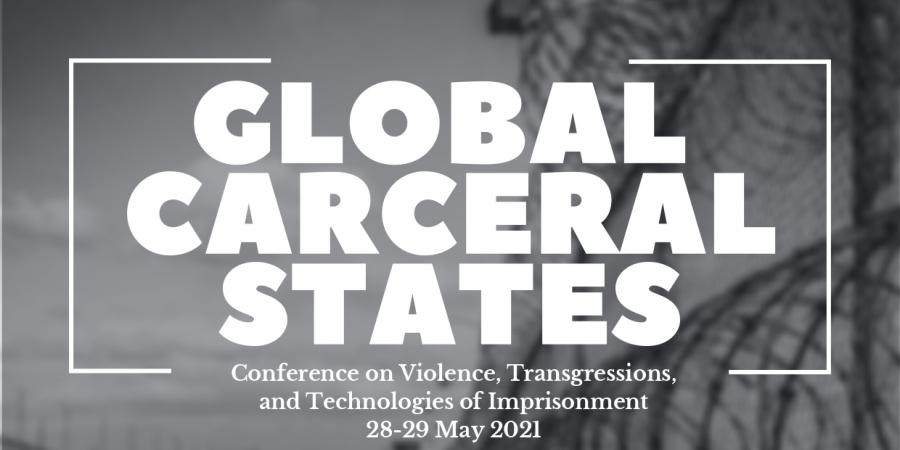This conference is organized in partnership between the Orfalea Center for Global and International Studies at the University of California – Santa Barbara (UCSB), USA, and Muwatin Institute for Democracy and Human Rights at Birzeit University, Palestine. The conference will be held online on the 28th and 29th of May 2021.
We are living in a world where the management of ‘security,’ ‘threats,’ ‘delinquents,’ and ‘the dangerous other,’ is essential to the workings of the modern state, and where numerous control techniques and technologies are created and continuously modified for this purpose. Security and control, once a monopoly of states, now engage and encompass numerous actors, including non-state organizations and groups, private companies, and technology industries. Yet imprisonment remains a central tactic for managing and confining members of populations deemed to be risky, hostile, or superfluous. Indeed, this reality is eloquently alluded to in Nelson Mandela’s autobiography where he writes that “prison is a still point in a turning world” (2008, 762). Prisons are a central feature of the lives of millions around the world, and many people are dealing with memories and traumas related to their own imprisonment and/or that of members of their families or communities.
Torture and other forms of extra-legal violence have long accompanied and reinforced the more “legalistic” dimensions of the carceral project. Long before the advent of the ‘War on Terror,’ knowledges and technologies of detention, control, and exploitation for information were being shared across borders. Forms of interrogational violence euphemistically branded ‘moderate pressure’ and ‘enhanced interrogation techniques’ were designed to dress torture in garbs of legality and allow for their legitimation and continued use. Indeed, the ramifications of the War on Terror have merely intensified the fortification of carceral realities around the world as incarcerating regimes devise ever-adapting means to further subjugate incarcerated populations and deny them their most basic rights.
Carceralized populations, on the other hand, have responded in a multitude of ways to the punitive powers exercised upon them by ruling regimes. Prisoners have long engaged in tactics of resistance, including hunger strikes, inventive and clandestine means to organize and communicate with those outside prison walls, forming communities of solidarity in struggle, and engaging in pedagogical knowledge. A vast genre of literary and artistic productions by prisoners enriches our understanding of the realities of confinement and carcerality. Indeed, these knowledges, as Avery Gordon notes, constitute a radical methodology of imprisonment that show and teach us how to live in spaces of death, dispossession and disenfranchisement (2008, 654).
This conference on global carcerality invites contributions that include but are not limited to analysis of the physical walls of prisons and the confinement of persons in place and time. Borders, walls and checkpoints are continuously erected to manage populations and confine them in designated zones. Technologies of surveillance closely monitor people’s movements and identify the potential ‘risk’ they might pose, thus broadening our understanding of what carceral control might entail and how it must be resisted. Contemporary wars, both conventional and asymmetric, have left people confined to zones and inside detention centers, severely restricted certain categories of people’s movement, and intensified the techniques and logics of surveillance. This reality of carcerality functions not solely to detain, punish and manage those deemed dangerous, but to socially engineer populations and squelch dissent. Thus, carcerality encompasses not only prisons but community- or society-wide control technologies.

